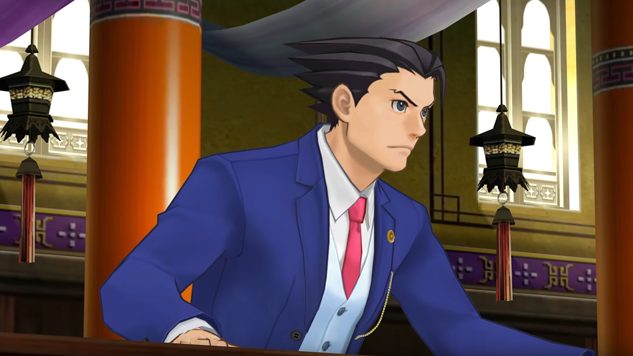How Phoenix Wright Avoids the White Savior Complex in Spirit of Justice

In Spirit of Justice, the newest installment of the Phoenix Wright: Ace Attorney series, established lawyer Phoenix Wright finds himself in the foreign country of Khura’in in the middle of a revolution. A resistance group led by a former defense attorney is fighting against the legal system in the country to have fair and just trials. At first, this seems like the perfect situation for Phoenix to be in. Who else would know how to fix the courts but Phoenix and his jolly band of colleagues?
Khura’in is troubling in its problematic defense of accused criminals. In what is known as the Defense Culpability Act, if someone is found guilty, then the lawyer and the accused are punished together. In most cases, this means their death. By the time Phoenix arrives to Khura’in, all defense attorneys are either dead or in hiding. To make matters even more complicated, the people of Khura’in are very religious, and incorporate divination into their legal system, deciding a person’s guilt through séances, which provide a court with a victim’s final moments before their death These brief glimpses of the murder are only a small piece in the puzzle of the crime, but the people of Khuar’in take them as the absolute truth. As a result, they usually punish the wrong people.
The problem isn’t that Khura’in is portrayed as having a fatalistically flawed legal system. The problem is that Spirit of Justice positions Phoenix in the trope of the Western hero, which relies on the white savior complex. While the original Japanese version of the Ace Attorney series takes place in Japan, the localization takes place in the United States, a country known for imposing its own ideologies and cultures onto smaller, developing countries. Khura’in and the U.S. are poised as opposites.here defense attorneys are respected in America, they are killed in Khura’in; in the United States, the law relies on facts based off evidence and testimony, in Khura’in it depends on divination and faith. In this colonialist context, Phoenix plays the role of white savior, and saving Khura’in from itself is now, as the imperialist Rudyard Kipling wrote, the white man’s burden.
But Phoenix does not carry an entire revolution in his hands; in fact, the people of Khura’in all but forbid him to overstep his role. After all, he is the foreigner, not the Khura’inese. There are many ways he is forced to remain secondary in the fight for justice. For example, Phoenix is not tasked with solving the case on his own. Khura’in’s princess Rayfa Padma Khura’in accompanies him during his investigations throughout the game. They work together to understand each crime and come up with solutions together.
Another, more important, example is illustrated through the Defiant Dragons, a band of revolutionaries that has been fighting to overthrow the country’s legal system. Former defense attorney, Dhurke Sahdmadhi, is their leader and among the most feared of the group. Accused of killing his wife, former queen of Amara Sigatar Khura’in, Dhurke fled and went into hiding after he was falsely accused of forging evidence. Dhurke’s case catalyzed the country’s distrust of attorneys, forcing the Defense Culpability Act. In response, he created Defiant Dragons , forming an underground network to prove his innocence and disrupt the oppressive regime. When Phoenix arrives, the revolution had been going on for years. Phoenix did not start, nor end, the resistance. He merely helped it move forward.
 Keep scrolling for more great stories.
Keep scrolling for more great stories.



